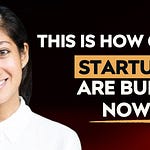In a digital world flooded with content and AI-generated noise, how can founders cut through the clutter and actually connect with their audience?
According to marketing strategist and bestselling author David Meerman Scott, it starts by ditching the outdated playbook and focusing on something most startups overlook: building fans, not just customers.
We recently sat down with David on the Ignite Podcast to explore what still works in marketing—and what desperately needs to change. Drawing from decades of experience, including helping HubSpot craft its original inbound marketing strategy, David shared a blueprint for modern marketing that’s both timeless and forward-thinking.
Whether you’re a founder, CMO, or startup operator, here’s what you need to know.
The Timeless Truth: No One Cares About Your Product
David opens with a hard truth: people don’t care about your product—they care about their own problems. Yet so many marketers still lead with features, specs, and sales pitches.
Instead, successful brands start by deeply understanding their buyers:
What are they struggling with?
How do they describe their problems?
What kind of content actually helps them?
The companies that win are the ones that talk to customers, not at them. They empathize before they educate—and only then do they offer a solution.
The Rise (and Staying Power) of Inbound Marketing
In 2007, David published The New Rules of Marketing and PR, a playbook that helped usher in the inbound marketing revolution. That same year, a fledgling startup called HubSpot invited him to join its advisory board.
Together, they shaped a new go-to-market strategy based not on ads, but on teaching customers how to solve their problems. The result? HubSpot grew from $250K in revenue to a multi-billion dollar public company.
Key lesson: Build trust by giving away valuable insights before you ever ask for a sale.
What’s Changed: Real-Time Marketing and the AI Frontier
The tools have evolved—fast. When David wrote his first book, Twitter wasn’t in wide use and Facebook was still student-only. Today, AI is reshaping the landscape again.
But even in the AI era, David warns against turning your content into what he calls “AI DREC”—derivative, regurgitated content generated solely from public internet data.
Instead, he recommends:
Using AI to enhance your original voice (e.g., suggest headlines, edit drafts).
Building your own proprietary AI engine trained on your content—blog posts, emails, sales calls, support tickets, etc.
Leveraging AI to surface insights and examples you might have forgotten from years of work.
This makes your content more personal, accurate, and impactful—without losing the human soul behind it.
Why Every Founder Needs a Personal Brand
David’s advice to early-stage founders? Stop hiding behind your product.
People want to know who you are, what you believe, and why you built this thing in the first place. Founder storytelling is an underused superpower, especially in B2B.
Even better? Share what you’re passionate about outside of work.
From a dentist who skateboards to a tech founder obsessed with the Grateful Dead, David shows how sharing personal passions can actually increase trust, likability, and business results. It's not about vanity—it’s about authenticity and emotional connection.
The Neuroscience of Fandom: What Makes People Love a Brand
David’s research into fandom (published in his book Fanocracy) reveals that physical proximity and emotional resonance are crucial to forming lasting bonds.
Whether it’s:
Hosting a live event
Featuring real people (not stock photos) on your site
Having the CEO talk to the camera on social media
These human elements activate mirror neurons, which trick the brain into feeling real emotional closeness—even over video.
And when people feel close to your brand, they don’t just buy from you—they root for you.
Real-Time Relevance: The Power of Newsjacking
David coined the term newsjacking to describe the practice of injecting your brand into breaking news—when it’s relevant.
He shares the story of a family lawyer in Canada who grew his business 23% during the pandemic by becoming the go-to expert on COVID-19 and family law.
The key? Speed + expertise + relevance. Not every story is yours to tell—but when the right one hits, jumping in with value and context can drive massive awareness and credibility.
Fan-First Marketing in Action: The Savannah Bananas
David closes with one of his favorite case studies: the Savannah Bananas, a reimagined baseball team that prioritizes fan experience above all else.
With rules like “if a fan catches a foul ball, it’s an out” and players dancing mid-game, they’ve grown from 200 fans to selling out NFL stadiums—and have more social followers than any major league team.
They didn’t just tweak the product. They transformed the experience.
Final Takeaways for Founders
Lead with empathy, not features. Talk about the customer’s world, not yours.
Create original content and use AI as a partner—not a ghostwriter.
Build your personal brand by sharing what you love. People follow passion.
Use neuroscience to your advantage—videos, faces, and events matter.
Stay real-time ready. When the right story breaks, be the expert who shows up.
👂🎧 Watch, listen, and follow on your favorite platform: https://tr.ee/S2ayrbx_fL
🙏 Join the conversation on your favorite social network: https://linktr.ee/theignitepodcast
Chapters:
00:01 – Intro and guest background
01:29 – Common marketing mistake: product obsession
03:10 – What’s stayed true vs. what’s changed
04:49 – Evolution of The New Rules of Marketing and PR
06:28 – The new rules for modern marketing
08:49 – HubSpot’s early playbook and inbound marketing
12:03 – Benefits of problem-first storytelling
13:59 – Feedback loop between content and product
17:43 – Importance of owning your content real estate
21:00 – Building a proprietary AI engine with your data
23:06 – Humanizing your brand in the age of AI
25:23 – Fandom, neuroscience, and proximity
27:34 – Mirror neurons and personal connection via video
31:10 – Using imagery and human faces in marketing
34:29 – Newsjacking: real-time marketing strategy
39:54 – Case study: Family lawyer grows business through newsjacking
43:06 – How to use AI without losing your voice
44:20 – The Savannah Bananas and fan-first marketing
48:22 – Organic storytelling vs. performance marketing
50:57 – Tools and AI resources for early-stage founders
52:00 – Crafting your first founder narrative
53:41 – The power of sharing personal passion as a founder










